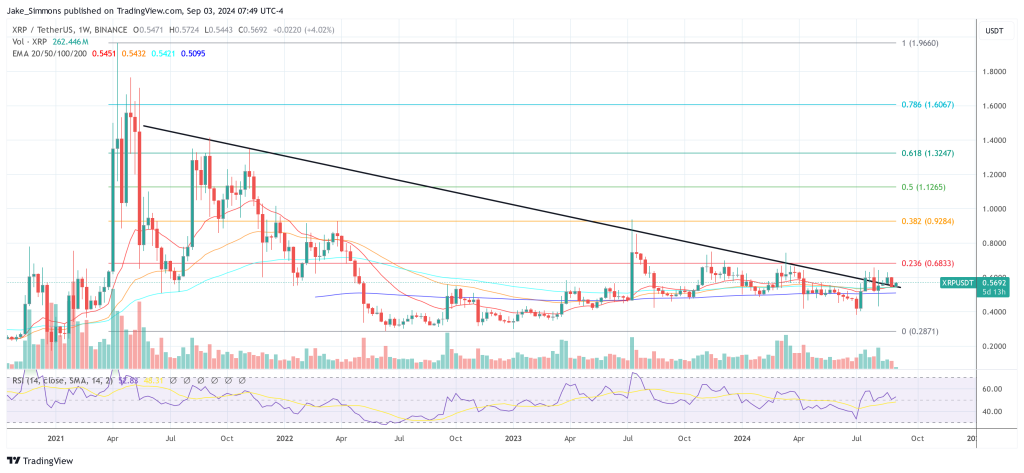Wietse Wind, founder of XRP Labs—one of the leading independent XRP Ledger development companies—has published an open letter to the community and Ripple. Wind is known for the Xaman wallet (formerly Xumm) and Hooks. The latter represents a smart contract functionality developed by Wind for the XRP Ledger, functioning as layer one custom code that influences the behavior and flow of transactions.
Today’s announcement by Ripple, that they will develop native smart contract functionality for the XRP Ledger as reported by earlier, has caused an uproar for Wietse Wind. While Wind has been developing Hooks since July 2020, Ripple has consistently maintained that it would not introduce native smart contract functionality. Understandably, this decision has caused significant frustration.
XRP Ledger Ecosystem ‘Hangs In The Balance’
Wind’s letter articulates a mixture of disappointment and frustration, exacerbated by what he perceives as a lack of transparency and collaboration from Ripple. He describes the extensive journey and substantial efforts undertaken by his team to bring Hooks from a conceptual stage to a fully operational feature, despite facing significant challenges.
He states, “Four years ago, XRPL Labs introduced the vision for Hooks – a groundbreaking L1 smart contract solution for the Ledger mainnet. Despite initial skepticism and limited support, we persevered, transforming this concept into a fully-fledged, battle-tested implementation.”
Wind expresses his disillusionment with Ripple’s recent pivot, pointing out the inconsistency in Ripple’s messaging and strategic alignment. He highlights a specific recent instance that underlines this shift, “The sudden change in opinion and narrative is surprising. Three months ago David Schwartz, the CTO of Ripple, shared a clear message at XRP Ledger Apex. The XRP Ledger mainnet was a ‘fixed function ledger’ and smart contracts belonged on other networks, such as the EVM Sidechain and Xahau.”
Further elaborating on the implications of Ripple’s decision, Wind reflects on the potential redundancy and disregard for the established work, “We designed and built Hooks, and poured in all our excitement, passion and good faith we have. It would be a shame if we end up allowing only Xahau to reap the innovative benefits of our endeavor.”
Wind’s frustration with the manner in which he learned of the smart contract pivot by Ripple also comes through clearly in his letter. He notes, “Moreover, the suggestion of exploring alternative technologies or ‘iterations of Hooks’ without involving the very architects of the original implementation is both perplexing and concerning. It raises questions about Ripple’s commitment to genuine community collaboration and respect for the contributions of ecosystem developers.
In his concluding remarks, Wind makes a heartfelt plea for a reevaluation of Ripple’s strategic choices, emphasizing the need for a plan that acknowledges and leverages the contributions of developers like himself who have been dedicated to the ledger’s innovation. He asserts, “We now stand at a critical juncture. Ripple faces a clear choice: embrace and support the existing, proven Hooks technology on the mainnet, or pursue a separate path that risks alienating dedicated developers and fracturing the ecosystem.”
Wind concludes with a drastic statement, “The future of smart contracts on the XRP Ledger hangs in the balance. Ripple’s next moves will definitively show whether it truly values ecosystem contributions or prefers a more centralized, corporate-driven approach to development.”
At press time, XRP traded at $0.5692.

Featured image created with DALL.E, chart from TradingView.com













